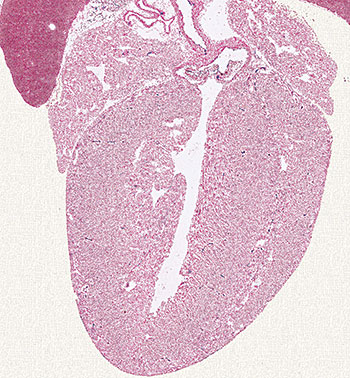

A HEALTHY HEART: DIET AND EXERCISE
Alberto Madureri
 Cardiovascular illnesses are the main cause of death and disability in industrialized Countries (a death every 2 seconds in the world). They are mainly caused by arteriosclerosis, a cronic illness of the entire body which appears under the form of angina pectoris or myocardial infarction, stroke and arteriopathy of the lower limbs. Recent data has shown how the decrease in deaths caused by cardiovascular illnesses in the last few years was due to more than 50% of cases whereby risk factors were reduced: prevention is better than curing!
Cardiovascular illnesses are the main cause of death and disability in industrialized Countries (a death every 2 seconds in the world). They are mainly caused by arteriosclerosis, a cronic illness of the entire body which appears under the form of angina pectoris or myocardial infarction, stroke and arteriopathy of the lower limbs. Recent data has shown how the decrease in deaths caused by cardiovascular illnesses in the last few years was due to more than 50% of cases whereby risk factors were reduced: prevention is better than curing!
The risk factors are divided into:
- non modifiable, in other words race, sex, age, family and personal history of cardiovascular illness: these are the genetical counter-parts and as such each person can do nothing about them!
- modifiable, which are the targets of prevention and will be discussed further on.
Lets begin by talking about DIET, that derives from the Greek word d?a?ta (dìaita), which means “way of living”. In fact food is a factor in cardiovascular risk for direct effects on cholesterol, blood pressure, weight and diabetes and for indepedent effects. Strong evidence has shown that the Mediterranean diet is the most balanced and correct diet to follow from a cardiovascular prevention point of view (and that of tumors as well). Its main features are: fish at least twice a week, one of which must include oily fish (which contains ?3 fatty acids); limitation of margarine and baked goods (containing trans-unsatured fatty acids); at least two-three portions a day (200g) of fruit and vegetables (containg fibres, antioxidants and anti-radicals; furthermore vegetables rich in potassium reduce blood pressure); less than 5g of salt per day (usually 9-10g are consumed), because it is directly correlated with blood pressure values: the reduction of only one gram per day of salt reduces the "maximum" pressure values in a hypertensive person by 3.1 mmHg and by 1.6 mmHg in a person with normal blood pressure; drink at least one glass of red wine a day (which contains polyphenols); limit carbonated sugary drinks.

A healthy diet is the first major step in fighting modifiable risk factors such as HIGH BLOOD PRESSURE, DYSLIPIDEMIA, EXCESS BODY WEIGHT and DIABETES MELLITUS. These last two factors are the only ones that are still increasing in industrialized Countries. Particularly, belly fat is associated to cardiovascular events because it releases hormones and pro-inflammatory and pro-thrombotic substances into the blood which favour diabetes mellitus, high blood pressure and dyslipidemia.
Another important factor is TOBACCO SMOKE, even for those who do not “inhale” and for those who are subject to second-hand smoke; in fact it is responsible for 50% of all preventable deaths in smokers, half of which are caused by cardiovascular illnesses. Quitting smoking quickly reduces the risk, but the negative effects are removed only after 10-15 years; simply reducing smoking only gives lower benefits.

Last but not least EXERCISE plays a very important role. It has favourable effects both on the heart (it increases the heart’s capacity of using oxygen, coronary vessel dialation, reduction of arrhythmia) and on the arteries (anti-thrombotic effect), reducing the negative effects of all the risk factors mentioned above. In Europe less than 50% of the population does regular exercise; the recommended amount is 2.5-5 hours/week of moderate exercise (walking at a fast pace, climbing stairs, household chores, gardening and leisure exercises), keeping in mind that it is also possible to divide the time into parts of at least ten minutes without changing the results at a cardiovascular level! Heart patients must consult their physicians when carrying out exercises but at least 3-5 sessions/week of light to moderate 20-30 minute aerobic activity is recommended; in this way the overall cardiovascular mortality rate is reduced by 30%.
Exercise also helps reduce STRESS and anxieties tied to aspects of everyday life, increasing psychological wellness and energy.
Doing regular exercise lets you come in contact with nature, allowing everyone (with the exception of rare and severe articulate diseases and cardiovascular illnesses) to reach beautiful and spectacular landscapes as seen in the photographs of this magazine.
Dott. Alberto Madureri: U.O. Cardiologia, Spedali Civili di Brescia